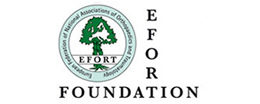EFORT Instructional Course
Lyon, France – 11-12 March 2011
Focus on the patello-femoral joint: Updating options for a widespread disorder
Patello-femoral disorders are a widespread source of pain and various degrees of disability throughout adult life. Yet, until recently, the patello-femoral joint has not been very well understood. Professor Dr. Philippe Neyret, Chairman of the EFORT Instructional Course “Patello-femoral Disorders” in March 2011 in Lyon, outlines some new approaches for dealing with this type of knee ailment and the comprehensive teaching concept behind the IC.
Professor Neyret, why is it necessary to perform instructional courses on such common conditions as patello-femoral disorders?
The disorders might be common, but as a matter of fact, the nature and mechanics of the patello-femoral joint were not well understood until about a decade ago, and the huge accomplishments since then are still not very widely known.
Yet nowadays, medical doctors are flooded with invitations to congresses and courses all around the world. So why reserve a date in an already busy schedule for the IC in Lyon – who is the target group you expect to profit most from the upcoming course?
Well, that’s easy to answer: first, there are still very few meetings dedicated to this pathology, and among these, we offer a uniquely comprehensive approach. We will convey the state-of-the-art in terms of theoretical background and of practical experience as well as in terms of classical techniques versus new, less invasive ones. And we will cover all the possible indications for an intervention in this most sensitive area. Specialised sessions will be held on the episodic patellar dislocation, the reconstruction of the MPFL, the bony procedure, trochleoplasty and PF arthritis. Participants will be provided the rare opportunity to listen to the experts in PF joint disorders, ask questions and share their own experiences at the highest professional level. Any chief resident, fellow and experienced surgeon interested in the patello-femoral joint will greatly benefit from this event.
EFORT Instructional Courses are known for their attempt to bridge the compartmental thinking which is a consequence of the progressive specialisation in the field of medical science. Is there a need for such bridging also with regard to the PF joint?
Yes, definitely, and we are to address this in Lyon. Traditionally, patello-femoral disorders are divided into instability symptoms and pain problems, or otherwise into sports medicine versus management of degeneration. In fact, this classification is artificial. Most obviously, traumatic events can accelerate degeneration, which in turn can make joints more prone to traumatic ruptures; instability may be the cause of pain, and so forth. At the IC, we will be offering a more comprehensive, interdisciplinary approach.
In terms of practical skills, what will participants be able to take home from Lyon?
A whole bouquet of updates presented in our workshops, I hope. Today, only a few surgeons perform reconstructions of the medial patello-femoral ligament, and even fewer are familiar with the designs of the patello-femoral prostheses currently available and the differences between them. The IC will allow the participants to conduct patello-femoral arthroplasties on models. Different prostheses and instruments will be presented by speakers and industry representatives for trial purposes. Practising and perfecting these techniques through virtual bone sawing under the eyes of Europe’s leading experts is a very rare opportunity that – in my opinion – should not be missed. Furthermore, we offer training workshops to identify trochlear dysplasia and to correctly analyse the PF joint on a lateral X-ray, CT scan or MRI view.
This sounds like very exciting advancements – but how far have we really come in improving the patient’s condition? Is the obvious technical progress really matched by improved results?
This is a very important question, not easy to answer in a few sentences. In a way, each joint and each patient’s condition is unique and therefore has to be analysed very carefully before any decision for or against a specific intervention is made. One underlying motto of the Lyon IC is a pledge of honesty: We will be very careful to discuss not only indications and techniques, but also the results of modern patello-femoral arthroplasty, which indeed also implies certain limits. We’re not only going to share what we already know, but will also be very frank about what still requires further investigation. We therefore hope that this course – as a beneficial side-effect – may also trigger some new research in the directions needed.
Apart from sharing and updating professional skills, conventions like this are also sought-after opportunities for socialising and networking in a relaxing environment. What does Lyon have to offer for the participants’ leisure time?
Since this is my hometown, I might be biased, but I live here for good reasons. Lyon is a world heritage city of outstanding beauty – with its two rivers converging and with its romantic restaurants on the riverside offering the famous French cuisine in a unique atmosphere. I’ll be most pleased if our esteemed colleagues will not only take home upgraded expertise, but also the memory of true “joie de vivre”.


